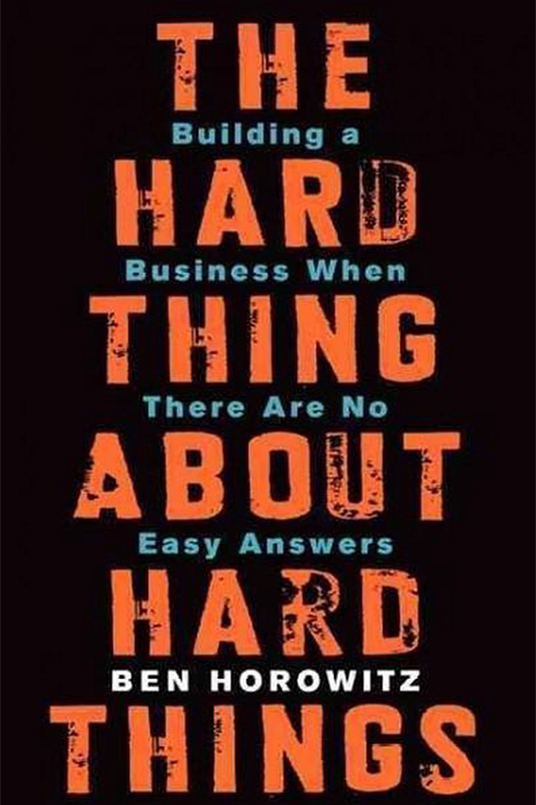This book is a must-read for anyone in a leadership position.
Also, it should be thoroughly highlighted and bookmarked so that you can come back to some of the great advice and insights that are shared in the book.
Ben Horowitz cut’s through the noise of most “peacetime” management books and suggestions out there and goes straight into the tough situations and decisions that you will face as a leader in today’s business environment.
MUST. READ. Period.
Flow: 5/5, reads as fiction due to how good of a storyteller Ben is.
Actionability: 5/5, you will be able to come back to the book when dealing with some of the tough decisions/situations described and get a better idea of how to proceed.
Mindset: 5/5, it will open your eyes to what really goes behind the scenes in the life of a CEO.
Some Of My Highlights:
-
“There are no shortcuts to knowledge, especially knowledge gained from personal experience.”
-
“Media companies focused on things like creating great stories whereas technology companies focused on creating a better way of doing things.”
-
“Well, boys, if you are going to have a dog race, then you are going to need a rabbit. And Oracle will be one hell of a rabbit.”
-
“There has been a powerful shift toward the idea that statistical ways of thinking are going to drive the future.”
-
“Sadly, there is no secret, but if there is one skill that stand out, it’s the ability to focus and make the best move when there are no good moves.”
-
“I follow the principle of the Bushido – the way of the warrior: keep death in mind at all times.”
-
“The Struggle is not failure, but it causes failure. Especially if you are weak. Always if you are weak.”
-
“A much better idea would have been to give the problem to the people who could not only fix it, but who would also be personally excited and motivated to do so.”
-
“Consider the following: If I trust you completely, then I require no explanation or communication of your actions whatsoever, because I know that whatever you are doing is in my best interests. On the other hand, if I don’t trust you at all, then no amount of talking, explaining, or reasoning will have any effect on me, because I do not trust that you are telling me the truth.”
-
“As a company grows, communication becomes its biggest challenge.”
-
“Build a culture that rewards -not punishes- people for getting problems into the open where they can be solved.”
-
“Training starts with a gold rule: Managers must lay off their own people.”
-
“Prior to executing the layoff, the CEO must address the company.”
-
“…the correct way to view an executive firing is as an interview/integration process system failure. Therefore, the first step to properly firing an executive is figuring out why you hired the wrong person for your company.”
-
“If you don’t have world-class strengths where you need them, you won’t be a world-class company.”
-
“In preparation for that meeting, I recommend scripting or rehearsing what you plan to say so that you do not misspeak.”
-
“Ben, you cannot let him keep his job, but you absolutely can let him keep his respect.”
-
“The best way to do this, if appropriate, is to couple that demotion with an increase in compensation. Doing so will let him know that he’s both appreciated and valued going forward.”
-
“Bill, nobody cares, just coach your team… When things go wrong in your company, nobody cares.”
-
“Spend zero time on what you could have done, and devote all of your time on what you might do.”
